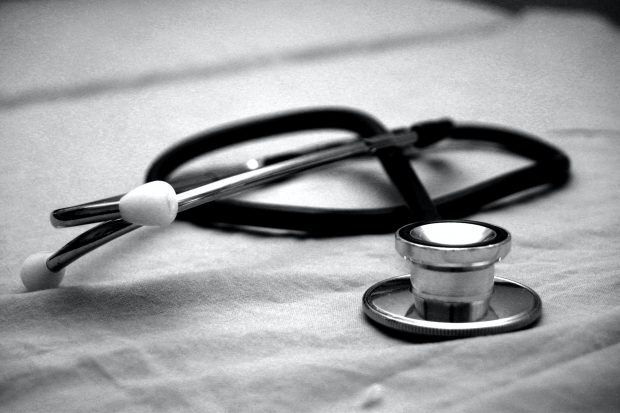Health insurance is an important key to living the healthiest life possible. Acting as a form of protection for both you and your financial well-being, it has established itself as a crucial part of life. From covering essential health benefits essential for maintaining your health, and protecting you from unexpected medical costs to preventative care. Health insurance is necessary for our well-being. But not everyone has access to it. This further fuels a crippling healthcare system that isn’t able to afford everyone.
What Do The Numbers Say?
According to a preliminary report by the National Health Interview Survey (NHIS), 27.4 million adults had no health insurance. While this may be a decrease from 2021’s 30 million statistics, it’s not a major difference. This isn’t an American issue, but a global one.
In Africa, a study conducted by the University of The Witwatersrand found that over 80% of the South African population also didn’t have any health insurance. There are many possible reasons why people don’t have health insurance. However, the most common one we’re seeing, on a global scale, is affordability.
Healthcare Is Expensive
According to a survey conducted by the Kaiser Family Foundation, the high costs attributed to about 40% of U.S. adults being at least $250 in medical debt. Healthcare in itself is expensive – even with insurance. According to research, about 73.7% of adults said that they found the cost of health insurance too high, with those affected by chronic conditions needing to pay higher premiums. A study by the Transamerica Institute revealed that 66% of people without health insurance are suffering from chronic conditions.
How Common Are These Chronic Conditions?
The National Center for Chronic Disease Prevention and Health Promotion reports that: six in 10 Americans were diagnosed with high blood pressure (116 million US adults, high cholesterol (94 million US adults), or obesity. 90% of the nation’s $3.8 trillion in healthcare expenditures are from citizens who are coping with chronic conditions and mental health issues. And like the disparities that account for these costs, they are present in the lack of people having insurance.
Disparities in Healthcare Translating To The Insurance Industry
Chronic diseases are more common among people of color and black people. According to the U.S. Department of Health and Human Services (HHS), while access to healthcare had improved, with the uninsured rate among Black Americans, the uninsured rate for Black Americans (12%) is still higher than that for white Americans (9%).
These disparities in health insurance relate to higher levels of chronic conditions, creating a constant loop of high incidence rates and poor health outcomes for many chronic health conditions. This is why having health insurance isn’t a luxury. Rather, it’s a necessity that could pose various health risks if one doesn’t have it.
Risks of Not Having Health Insurance
1. Self-diagnosis
In many instances, people will research a health-related symptom they’re experiencing, and link it to a certain condition. A study published in the British Medical Journal found that 34% of self-diagnosis reports were correct.
Dangers of self-diagnosis
- Increased Anxiety: Self-diagnosis can cause more worry than the symptoms were already triggering. This increased stress and anxiety can then lead to worsening symptoms. Anxiety can interfere with your immune cells’ abilities to regulate inflammation.
- Missed Diagnosis: This can lead to you embarking on the wrong home treatment, or no treatment at all, which could worsen your condition. If an individual doesn’t have the funds to visit the doctor for a check-up, they may end up missing a serious medical condition and not get the proper treatment for it.
2. Lack of Treatment
Health insurance goes further than chronic condition treatments. It’s needed for other injuries, procedures, and tests. Contrary to popular belief, health providers aren’t required by the law to provide medical services to any individual without healthcare insurance. This means that the individual would have to pay these high costs out-of-pocket. This can pose an issue when unforeseen circumstances land you in the hospital. Circumstances can include car accidents, a severe allergic reaction, or even food poisoning.

Photo by Hush Naidoo on Unsplash
Here is a list of a few tests and procedures, and the costs that individuals would have to pay without health insurance*:
- Complete Blood Count (CBD): $140 – $622
- Urinalysis: $129 – $634
- Lipid Panel: $303 – $843
- CT Brain Scan: $825 – $4800
- Mammogram: $100 – $300
- Prostate-specific antigen test: About $120
*Average costs obtained from www.talktomira.com
During the Covid-19 pandemic, prices for tests went as high as $3000, compared to them only costing about $100 now. Due to this, many people couldn’t get tested, which led to people not being able to treat the virus. Health insurance is added to the convenience by covering up to 8 FDA-authorized rapid at-home test kits purchased over the counter each month. As helpful as this is, not everyone can access them due to being restricted to those with health insurance.
Is Healthy Eating the Sole Answer to Healthy Living?
There has been a continuous debate on whether consuming healthy food is enough to ensure you’re living at your best.
In a piece published in 2009 in the Wall Street Journal, Whole Foods CEO John Mackey criticized President Barack Obama’s health care plan. He advocated for less government control of health care in the U.S. But it didn’t stop there.
In 2021, he caused a huge social media stir after doubling down on this comment. He said that the key to keeping people healthy is for them to eat better and live healthier lives, not health insurance.
The CEO, who also removed healthcare coverage for the supermarket’s part-time employees in 2019, adds that many of the healthcare problems people place are “self-inflicted”. He adds that they’re preventable through a “proper diet, exercise, not smoking, minimal alcohol consumption, and other healthy lifestyle choices”. His statement implies that Americans need to stop making “bad” health choices.
While it is true that a poor diet and unhealthy lifestyle choices can impact your health, it doesn’t remove the necessity for health insurance.
Making Health Insurance a Priority
Health insurance is a human right, not a luxury, and our goal should be to ensure that everyone has equal access to it. This would help ease the burden that untreated chronic conditions, or injuries, put on individuals and the healthcare system, especially through early detection. The importance of early detection ensures that treatment is effective and that the specific condition doesn’t impact your health. An example of this is cancer. The odds of surviving cancer are greater when the disease is detected, diagnosed, and treated early.
Yet, without health insurance, it can be impossible to conduct a scan to detect it. While public healthcare may be an option, it exhibits many shortcomings. These include long waiting times and poor-quality healthcare services. As such, it’s not an alternative in any way.
Health insurance is necessary for longevity. It protects you from the overwhelming costs of obtaining good quality medical care, preventing financial stress, which damages your health.
MAIN IMAGE CREDIT: Photo by Karolina Grabowska
References
- Gong, G., Phillips, S.G., Hudson, C., Curti, D. and Philips, B.U., 2019. Higher US rural mortality rates are nano vehiclelinked to socioeconomic status, physician shortages, and lack of health insurance. Health Affairs, 38(12), pp.2003-2010.
- Adepoju, O., Mask, A. and McLeod, A., 2019. Factors associated with health insurance literacy: proficiency in finding, selecting, and making appropriate decisions. Journal of Healthcare Management, 64(2), pp.79-89.
- Wu, G., Wei, W., Zhang, J., Nie, W., Yuan, L., Huang, Y., Zuo, L., Huang, L., Xi, X. and Xie, H.Y., 2020. A self-driven bioinspired nanovehicle by leukocyte membrane-hitchhiking for early detection and treatment of atherosclerosis. Biomaterials, 250, p.119963.



![women [longevity live]](https://longevitylive.com/wp-content/uploads/2020/01/photo-of-women-walking-down-the-street-1116984-100x100.jpg)










